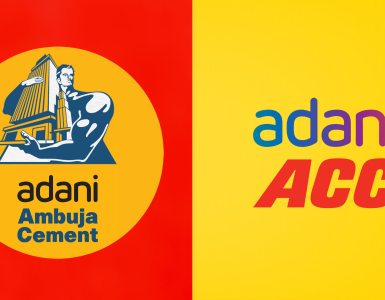Information technology giant Accenture has taken the acquisition route to spur growth. In the last five years, the company had spent around $3.5 billion to make over 70 buyouts. To put that in perspective, the total amount spent on acquisitions by Accenture is more than the two IT biggies, Infosys and Wipro Ltd put together, had spent on acquisitions. The acquisitions done by Accenture are by no means a small feat as it requires a well-oiled M&A system to drive so many acquisitions and ensure smooth integration to deliver value.
How buyouts spur growth
Ireland-based Accenture’s spate of acquisitions of companies such as analytics and cloud computing has helped to outpace growth. The listed company, which follows a September-August fiscal, is likely to report 6.7% dollar revenue growth in the year to August 2018. The aggressive acquisition model of Accenture is driven by Fortune 1000 clients demanding from the IT vendors solutions that help them run their business better. In fact, in the digital space newer technologies such as data analytics and cloud computing, where Accenture has done acquisitions, are the growth drivers of the future.
Accenture’s cloud computing and security-related solutions accounted for over 50% of revenue. The company has done a good job with financial engineering and mergers and acquisitions as they have bought their way into aggressive growth and expanded into new businesses like artificial intelligence, marketing operations and digital transformation. The size of acquisitions matters and Accenture has set the right tone. Most of the acquisitions are smaller in size with less than 200 staff. Globally, Accenture is known for its expertise in new technologies such as data analytics, cloud computing, consulting and creative practices. These help clients utilize the innovations for business growth.
Over the years, Accenture has become a global company not just through organic growth but through strategically acquiring smaller assets globally for greater depth in their customer relations and be one-stop shop for all professional services. Most notably, Accenture does not believe in large acquisitions because of high failure rates. The company does acquisitions of very specific companies with very specific and differentiated capabilities.
Snapshot of few acquisitions
Accenture had acquired Genfour, an automation integration and professional service company. In fact, Genfour has been growing its revenues more than double year-on-year. The company has a strong presence in the insurance and utilities sectors as well as a few clients located in the US. The company works with many service delivery companies such as Blue Prism, UniPath and Celaton. Since automation skills are in short supply, the acquisition of Genfour by Accenture helped in garnering skills to grow. In terms of technology, the two companies’ capabilities complement each other and over the years, Accenture has built extensive automation capabilities.
Last year, Accenture bought Austin-based Clearhead, a digital optimization outfit that specializes in helping bands personalize their interactions with customers. The 70-strong headcount, with a client base such as Adidas, Tesco is helping Accenture’s digital growth. Clearhead’s business model helps clients in brick and mortar retail improve the e-commerce experience. In the similar business space, Accenture had acquired Kamarama, a creative agency, in 2016. In a quick move, it also acquired Australia based independent creative shop The Monkeys.
The other acquisitions include that of digital product developers Intrepid, agile software consultancy solutions IQ, e-commerce experts Media Hive and cyber security advisors iDefence Security. All these acquisitions have helped Accenture future-proof its own operations. Other acquisitions are OCTO Technology, a digital consulting firm based in Paris and Allen International, a design consultancy that specializes in banking. In cloud, it has acquired DayNine, a workday consulting and services provider and Nascho Consulting.
Accenture has been betting big on acquisitions in the digital agencies. It has made around five acquisitions in the last five years in this space. These were done to gain entry into a geography or clients unique to those agencies. The acquisitions opened up the door for business in Germany, Netherlands, Hongkong and Brazil. Moreover, Accenture has been progressively focusing on Software as a Service (SaaS) consulting and acquisitions like Servicenow Consulting, Nascho, Workday and Salesforce Consulting has given the company enough skill base to expand. Moreover, Accenture has been aggressive to enter marketing services as they seek to challenge the role of agencies by offering solutions that cover every aspect of customer experience.
An analysis of all the 70 acquisitions done by Accenture shows that around 50 of them are in the areas of design, social, mobile, analytics, cloud computing, cyber security and Internet of Things that will be the new revenue stream of the future. Going forward, the market is moving towards increasing levels of domain and industry specific automation. So, Accenture will build capabilities for specific domains and vertical expertise as well as increasingly more complex projects. Accenture is helping customers to transform from legacy processes to digital initiative and these acquisitions are helping the company. The path laid by Accenture is an envious one for others in the industry to emulate.
About Accenture
Accenture is a leading global services company providing solutions in strategy, consulting, digital, technology and operations. The company develops and implements technology solutions to address complex and mission-critical issues of clients. Accenture delivers its services and solutions through 13 focused group in five operating groups. The five businesses – Accenture strategy, Accenture Consulting, Accenture Digital, Accenture Technology and Accenture Operations – develop and deliver integrated services and solutions for clients.
Table 1: Financials of Accenture
| FY16 | FY17 | |
| Revenue ($ bn) | 32.9 | 34.9 |
| New bookings ($ bn) | 35.4 | 37.4 |
| Diluted earnings per share ($) | 6.45 | 5.44 |
| Operating margin (%) | 14.6 | 13.3 |
| Cash returned to shareholders ($ bn) | 4 | 4.2 |
| Free cash flow ($ bn) | 4.1 | 4.5 |
Source: Company annual reports
Acquisitions by Indian IT companies
In the past three years, Indian IT consultancy firms like TCS, Wipro and Infosys have together spent around $2 billion on acquisitions. Wipro had initiated mergers and acquisition spree in 2005 with a strategy called as String of Pearls. Since then it has acquired around 14 companies with varied valuation. These acquisitions have helped Wipro hedge technology risks, especially at a time when newer startups disrupt existing ideas. Wipro acquired US-based healthcare and life science firm HealthPlan for $460 million. This acquisition was done to strengthen Wipro’s existing business in the healthcare sector, which accounts for 12% of the company’s overall business. It was the second-biggest acquisition in the company’s history; the biggest was in 2007 when it acquired Infocrossing for about $600 million. HealthPlan was set up in 1970 which provided technology platform and business process as a service solution to health insurance companies in the US.
In December 2015, Wipro had made two acquisitions including German consulting firm Cellent AG for $77 million and new Jersey-based Viteos Group for $130 million. Over the past six years, Wipro has made over half a dozen acquisitions firm like Opus Capital Markets Consultants, Atco I-Tek, and Australia-based Promax Applications. Similarly, Wipro acquired US-based cloud services firm Appirio for $500 million. It had annual revenue of less than $200 million, which means that the price tag of buying this company was 2.5 times revenue. The acquisition has helped Wipro as Appirio is one of the largest independent cloud services implementation partner for software as service vendors such as Salesforce and Workday. It will eventually help Wipro place to position itself in the software as services domain.
These acquisitions will help Wipro in the ongoing shift from on-premise software business to software as a service business. In technical terms, software as a service is software that is delivered over the internet to customers. Most business customers buy much of their software this way. This is a different support model that legacy systems integration companies like Wipro will have to adopt rapidly to stay ahead of the curve. About half of Wipro’s revenue is from business applications and the rest is from business process outsourcing. The series of acquisitions done by Wipro has sent the right message to investors that the company does not sit on a pile of cash that earns negligible returns. Despite the low growth trajectory, the company has been aggressively making acquisitions to get out of the slow growth cycle. However, investors will expect that Wipro’s management works on integration issues and regain the lost position.
Infosys has done only three acquisitions since 2015 – Isreal-based Panaya for $200 million, US-based Skava for $120 million and US-based Noah Consulting for $70 million. Companies will have to look for acquisitions to grow. Acquisitions cannot be done just to increase revenue, but to help the change in a specific vertical. Going forward, there will be consolidation in the industry and those who make bold moves early and take risks early will benefit in the changing IT services landscape.
Conclusion
Accenture’s consolidation is being driven by a desire by large companies to regain control over how customers experience their products and services. To retain customers and maintain margins, Indian It companies need to change its business model and capture and crate capabilities based on new technologies. Old model based on labour arbitrage will not give them and enough cash flow to sustain in long term. They need to spend lot of money to retrain ad acquire new skills by their employees even at the cost of margin., Technologies such as software for customer service, sales and marketing that help companies make better business decisions will be the future growth drivers. While many technology consulting firms are specializing is some of these areas, Accenture is strongly building its business on that path which will reap them high dividends.




